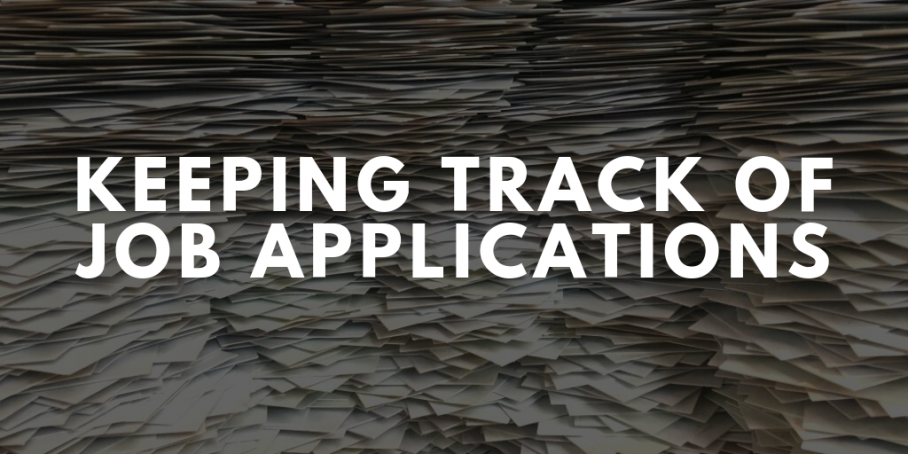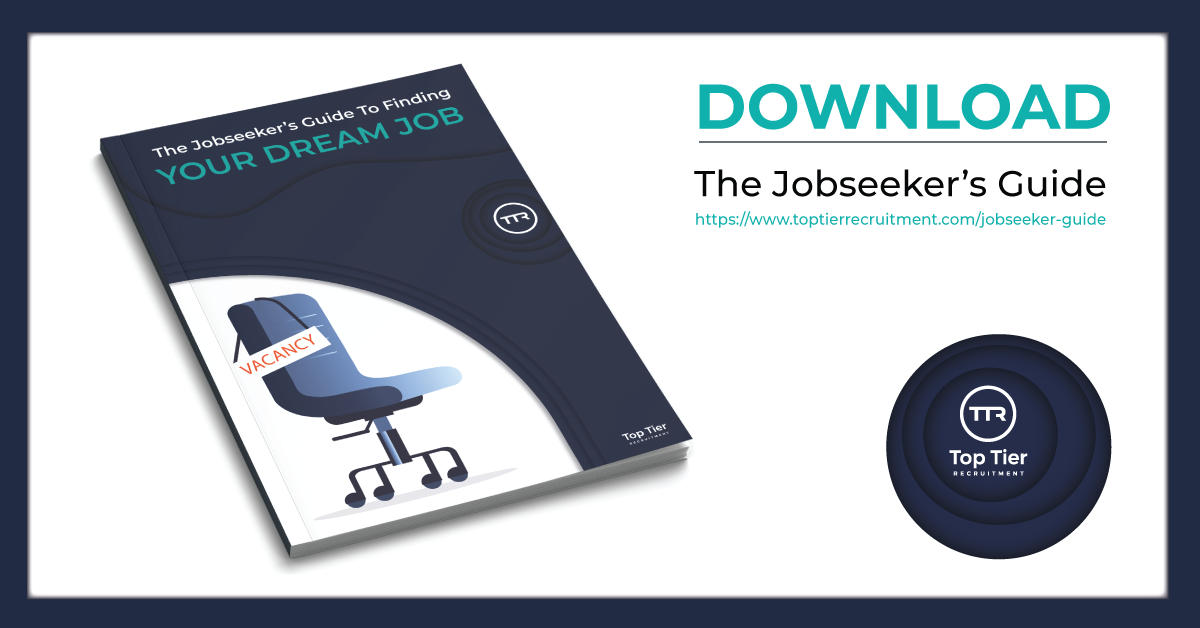Keeping Track Of Your Job Applications

Ever wondered whether it's necessary to keep track of job applications and to follow-up?
If so, how and when do you do it?
Laura and Paul give you the low-down on this issue in this podcast discussion.
But first . . .
While You're Here: Get The Jobseeker’s Guide To Finding Your Dream Job
Want some extra help to land the job of your dreams? 
The 'Jobseeker’s Guide To Finding Your Dream Job In Ireland's Financial Services & FinTech Industries' will help you put a plan in place to secure your dream job. You’ll know how to prepare well, how to ace those interviews, and how to handle the next stage.
You can download the free Jobseeker's Guide now.
Podcast Discussion
Ok, let's get into the discussion . . .
Keeping Track Of Your Job Applications
Laura: Paul, in your view, do you need to keep track of applications?
Paul: Yes, absolutely. You need to make sure you know where your CV is going and the role it's for, and as much information as you can really. You want to make sure that you're not sending your CV through different sources or different channels for the same role, or if you're CV is arriving in the same company by multiple different sources. It just doesn't look good. It reflects badly on you and it reflects badly potentially on a recruiter if they're doing it. It just doesn't reflect well at all, so you do need to keep track of where you're applying and what roles they are.
Laura: Yes, absolutely. How do people keep track? Because people apply for jobs through various different platforms. How do they do it, do they keep an Excel spreadsheet, or what would you recommend to people?
Paul: Yes, really simple. I think Excel is probably the handiest thing because you can search it fairly easily or you can filter by company or filter by role type. It could be Excel, it could be just a case of saving your response emails into a folder on your email, it could be a Word doc. Really, whatever works for you, but it is important that it's easy to use and not too onerous. I would suggest keeping a record of when you sent the CV, if you got a response from it, what the job was, what the company was. If you happen to know the hiring manager or if there was a specific contact that you sent it to, I'd keep a note of that as well.
Paul: That can be your basis for tracking the rest of your job search. If you have heard back, add a notes column if it's Excel. Were you rejected for an interview, do you have an interview coming up? Just keep notes on what's happening. It's a really handy way of doing it.
Laura: Yes, absolutely. It's handy and it is fairly simple. If you hear nothing back from a particular position or company in a few days after applying, does that mean that you were unsuccessful?
Paul: No, definitely not. Probably one of the most common things we see is people almost expect feedback within a day or two, and it can happen, but in most cases, it doesn't. You do need to be a little bit patient. Obviously, when we're dealing with applications on your behalf, we'll try our very best to give you a reasonable timeframe, but all sorts of things happen.
Paul: Like we're recording this in August, it's the bank holiday weekend coming up. This week and next week are probably the two quietest weeks in the two quietest months in recruitment outside of Christmas. That causes all sorts of issues. Clients are looking at a role for the first time, they get a whole load of CVs, didn't realize that a certain skill set was out there or realized they needed something else, so things may change, and that can delay the process. It can be a whole load of different things really that cause delays. But not hearing back after a couple of days, it's nothing to be concerned about, nothing to be overly concerned about. Definitely not.
Laura: How should somebody follow up without being annoying or coming across as desperate, and how soon is too soon to follow up?
Paul: I think a couple of days is too soon unless you've specifically been given an indication that it definitely will be two days’ time. I'd leave it a week, a week to 10 days is a reasonable amount of time, in my opinion, to follow up, and that's normally what I've gone by. I think you follow up, I suppose my approach if I was a job seeker, I'd probably follow up by email first. Just a gentle, "I hope you received the application. Really interested in the role. Just wanted to follow up and see where things were." If you're not hearing back, certainly follow up again and absolutely move to phone or LinkedIn if you're connected with the person.
Paul: I'd say a week or so, and then leave it a couple of days for a response, because this is an application that you've made and so clearly it is very important to you, and we get that, definitely. We've all been there, but you do have to remember that a recruitment process is part of someone else's role. It's not their full-time role. While it is definitely important for them, there are other competing priorities. So you don't want to be that person who's emailing twice a day and leaving loads of voicemails and everything else.
Laura: Fair enough. What should you say in your follow-up message?
Paul: Just a gentle reminder. It's an opportunity to I suppose reinforce that you are interested in the role. Something along the lines of, "Hi Laura, just wanted to drop you a quick email to make sure you received my application. Just wanted to reiterate that I am very interested in the role." I would certainly flag if you are in other processes. I think that's important information to give a potential new employer. It can sometimes light a bit of a fire, and so it would be important to flag if it is time-sensitive or under a bit of pressure. I'd just guard against using that as a tool, almost, to get someone to hurry up, because if you're saying you're in a process and a process does drag on a little bit with another employer, then what's happened to that process? How much delay can you do without it sounding suspicious? Be straight about that. Don't lie about things like that. Really important.
Laura: Any final advice?
Paul: Definitely keep track of applications, is really, really important. We talked about on other podcasts the importance of, I suppose trying to be a bit strategic about your career, and certainly the podcast we did recently with Philip Coffey, we talked about that a lot. You know, it's not the scattergun approach. It's being quite targeted and selective around what you're looking for. Keeping a simple spreadsheet shouldn't be a massive thing, and you'll find it'll make your life an awful lot easier in terms of organizing and planning it out. That's the main takeaway, and then obviously the other one is how to follow up and when. Just don't be that person who calls 10 times a day and follows up twice a day by email. It just doesn't work.
Need Help?
If you want any information or are interested in one of our roles in the Fintech and financial services industry, get in touch with us at Top Tier Recruitment.
Check out our podcast and, if there's ever anything that you would like discussed, feel free to get in touch, info@ttrmail.com.
If you need further help with your career and interested to learn more about career coaching, visit Possible Coaching today to arrange a introductory call!